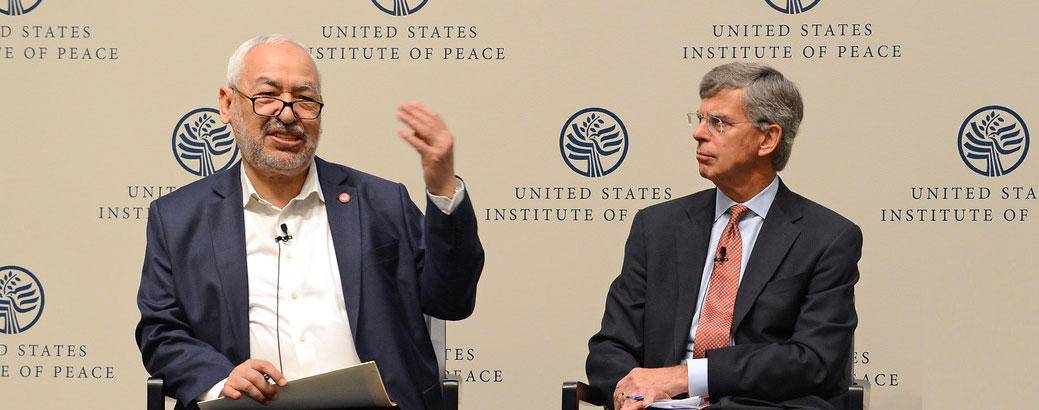MENA Region in Crisis: Islam, Democracy and Extremism
Read the Event CoverageOn September 29, the U.S. Institute of Peace (USIP) hosted distinguished speaker, Rached Ghannouchi, who discussed the political and security crisis in the MENA region.

The Middle East is witnessing deepening disorder with the Islamic State of Iraq and the Levant (ISIL, also known as ISIS) now controlling a territory the size of Indiana. Extremists in Libya and parts of the Levant operate freely, while youth from Tunisia and 60 other countries have flocked to Syria. The Egyptian military continues to struggle with the influence of the Muslim Brotherhood and counter-revolutionary forces in the political sphere and public arena.
With democratic hopefulness in decline, the MENA region is now beset with a strategic struggle to halt the spread of extremism. National dialogues, crafting new constitutions, reconciliation and transitional justice appear secondary to security challenges. The core lessons of Tunisia’s political transition are lost to many in the region and in the international community.
On September 29th, the U.S. Institute of Peace (USIP) held a discussion with distinguished speaker, Rached Ghannouchi, who discussed the current political and security crisis in the region, including how Tunisia’s democratic transition and experience can be drawn upon when seeking solutions to these protracted crises, and can show how dialogue and compromise can pave the way for national unity and reconciliation.
Speakers
Sheikh Rached Ghannouchi
One of the world’s leading Islamic thinkers and a founder and President of the Ennahdha Party in Tunisia, which rose to power in 2011. His leadership played a critical role in stabilizing post-revolutionary Tunisia and in the success of the democratic transition and national dialogue in Tunisia.
Robin Wright
A journalist, author and joint fellow at the USIP and the Woodrow Wilson International Center. She has reported from more than 140 countries on six continents and received multiple awards and accolades for her writings on international affairs.




